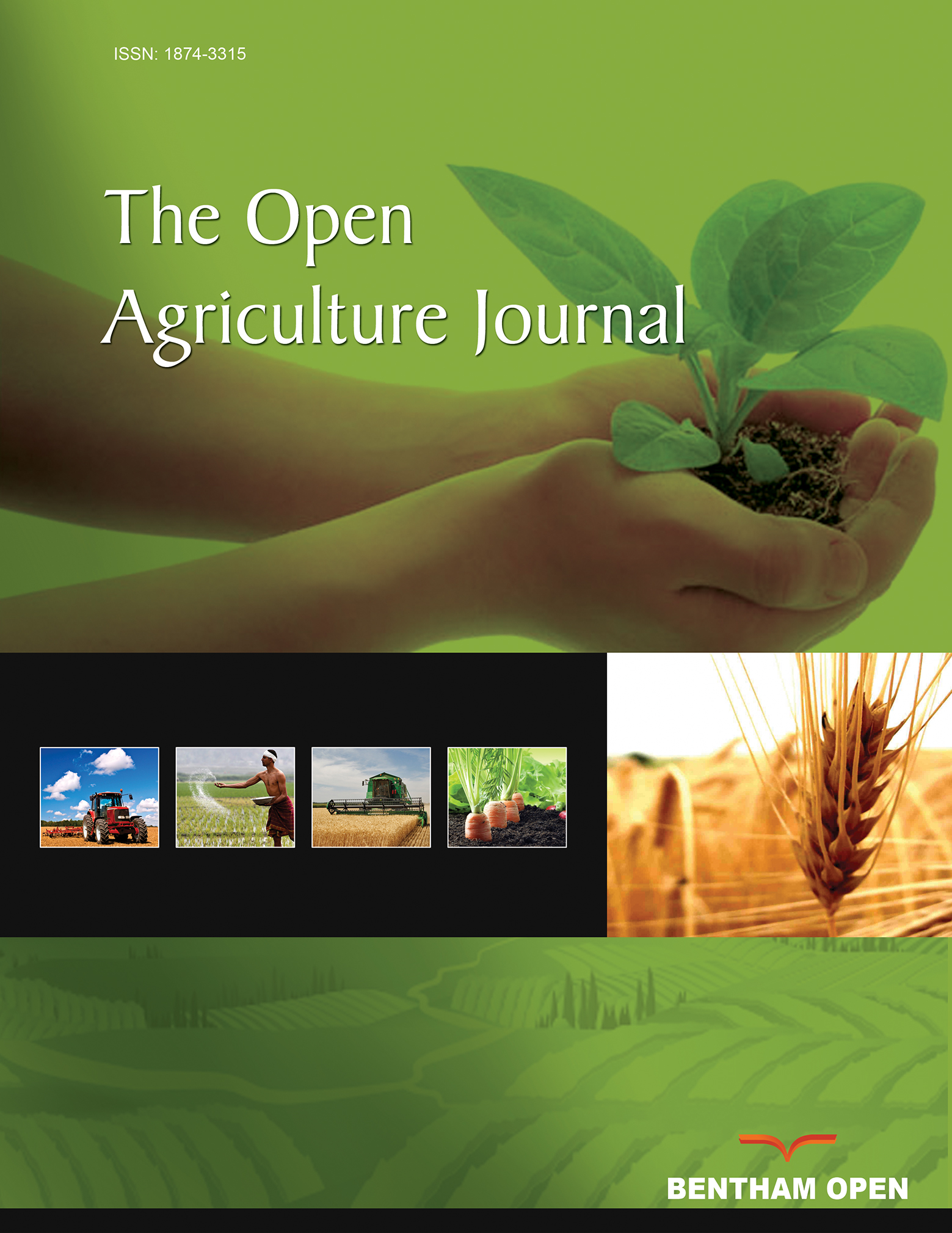All published articles of this journal are available on ScienceDirect.
Inhibition of Mycelial Growth of Rhizoctonia Solani by Chitosan in vitro and in vivo
Abstract
Objective:
Evaluate the antifungal effect of chitosan against Rhizoctonia solani in vitro and the possible mechanisms of its induced activity in potato tubers to control black scurf disease.
Methods:
The in vitro influence of chitosan at different concentrations on mycelial growth of R. solani was tested by using the poisoned food technique in PDA medium. The effect of these concentrations on the development of lesion diameters in tubers inoculated with R. solani mycelium was assayed for 30 days. The concentration that showed the greatest inhibitory effect on lesion diameters was tested to assess the induced activity of defense-related enzymes in the infected tubers.
Results:
In the poisoned food technique, chitosan at 1% completely inhibited the growth of R. solani mycelium. In vivo tests showed that chitosan treatment at 0.5% effectively controlled the black scurf in tubers inoculated with R. solani mycelium. Chitosan increased the activities of defense-related enzymes such as Peroxidase (POD), Polyphenol Oxidase (PPO) and Phenylalanine Ammonia-lyase (PAL) in treated tubers of tested cultivars.
Conclusion:
This work demonstrated that chitosan directly inhibited the growth of R. solani, and potentially elicited defense reaction in potato tubers.


